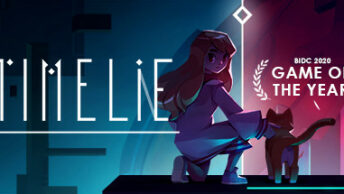After 4 long years, Wayward Souls has finally made its way to PC, but is it worth the wait?
Type: Single-player
Genre: RPG, Action
Developer: Rocketcat Games
Publisher: Rocketcat Games
Release date: 16 Jul, 2018
While Wayward Souls might have just released on Steam’s Early Access program this month, the game has been available on iOS and Android for at least 4 years, if I am not mistaken. With that said, I guess that, in the meantime, Rocketcat Games were too busy working on Death Road to Canada, which was released 2 years ago and was pretty well received across the board, to work on porting Wayward Souls to PC. Fortunately enough, for those that have been waiting for that moment, it is finally here, and even though it is not the 1.0 version, I would dare to say that it should be pretty close to it.
As the game advertises itself, Wayward Souls is an Action RPG, one that puts players on a series of randomly generated levels, but it also feels like a Dungeon Crawler. The game also claims to present a “heavy focus on story”, although that is up for debate. The biggest focus of the game is certainly its combat, which is slow and methodical, and perhaps it might be too slow for some people.

The tale of Wayward Souls revolves around half a dozen characters that you can play as, albeit there are only three unlocked at the start, a warrior, a mage, and a rogue. Despite having different heroes that you can play as, each character progresses independently as you play the game. This happens because, not only the game has a permanent progression system in the form of passive upgrades for each character, but the dungeons themselves are also locked at the start of the game. Let’s say, you play as the rogue, you beat the first dungeon and unlock the second one, and now if you die you can just start in dungeon number 2. However, if you decide that you want to play as some other class on your next run, you have to start from the first dungeon. Dungeons are only unlocked for the characters that you play as.
Picking different characters also allows you to experience different storylines, as each hero you has their own tale that develops through some minor dialogues and special encounters every few levels. In some parts of the dungeons, there are also what seems to be echoes, or visions, of the past, where you can see people talking. There are also a few books here and there that give you tiny bits of lore, and while reading all these things on their own might make everything feel very confusing, slowly you’ll start piecing things together and things will start making more sense. Still, I wouldn’t really say that this is a game that is focused on the story.
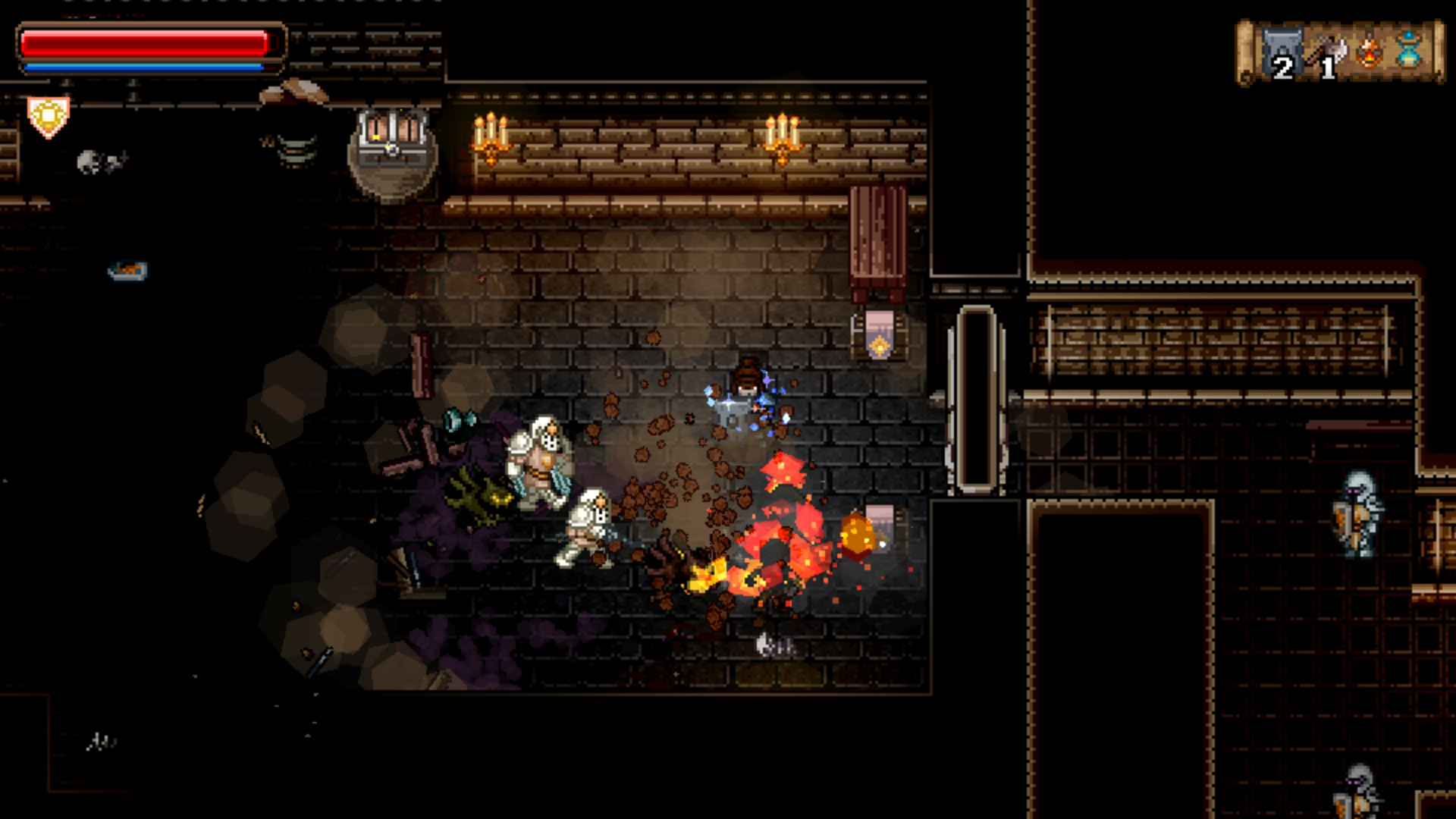
There are many games in this genre where the combat simply doesn’t cut it, and thus they fail to deliver an engaging experience and keep the players hooked throughout its entirety. Unfortunately for me, I must say that, for me, Wayward Souls simply leaves me craving for something with a bit more depth. Each of the different characters has their own unique abilities, equipment, and upgrades, and with this comes along very different play styles, but in the end, everything gets old really fast.
Different characters obviously feel different from each other, and even depending on the weapon that you have at a specific moment, the same character can feel a lot different, but, at its core, combat feels very slow, and deliberately so, which is a way to enhance the differences between different weapons, as well as enemy types and projectiles. Most of the time you will only be using your basic attack, or your power attack that consumes energy, and can be used by holding down the attack button, but there are also secondary abilities like projectiles, shields, or throwable items, that vary between each class.
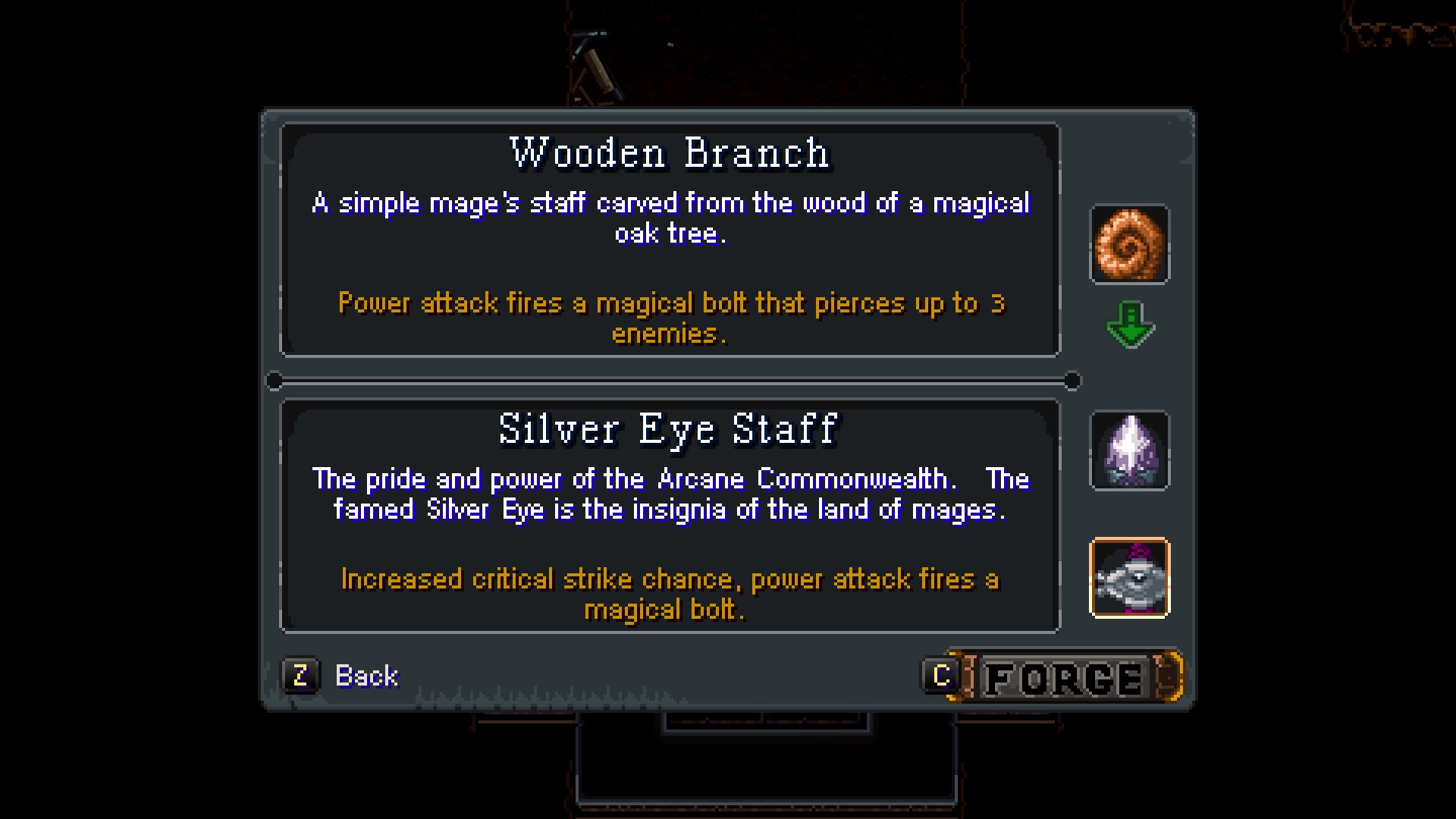
Even though there isn’t much emphasis put into it, the game isn’t devoid of loot or customization, as there are altars that grant you certain blessings, as well as pets, and forges where you can enchant your equipment with different special abilities. These range from things such as granting you a small chance to stun enemies when you strike them down, unleashing projectiles that harm enemies, or even making it so that your axes can pierce through enemies.
I wouldn’t say that there is a lack of variety in terms of how many different combat approaches there are, but I would say that the game doesn’t seem to provide enough interesting gameplay opportunities while fighting off the numerous waves of enemies. Each dungeon has their own set of enemy types, but the vast majority of them just feel and look bog standard. The enemy AI, while still pretty competent for the most part, can be bit dumb sometimes, as enemies can often keep running into a wall and trying to attack you if you’re close to the opposite side.
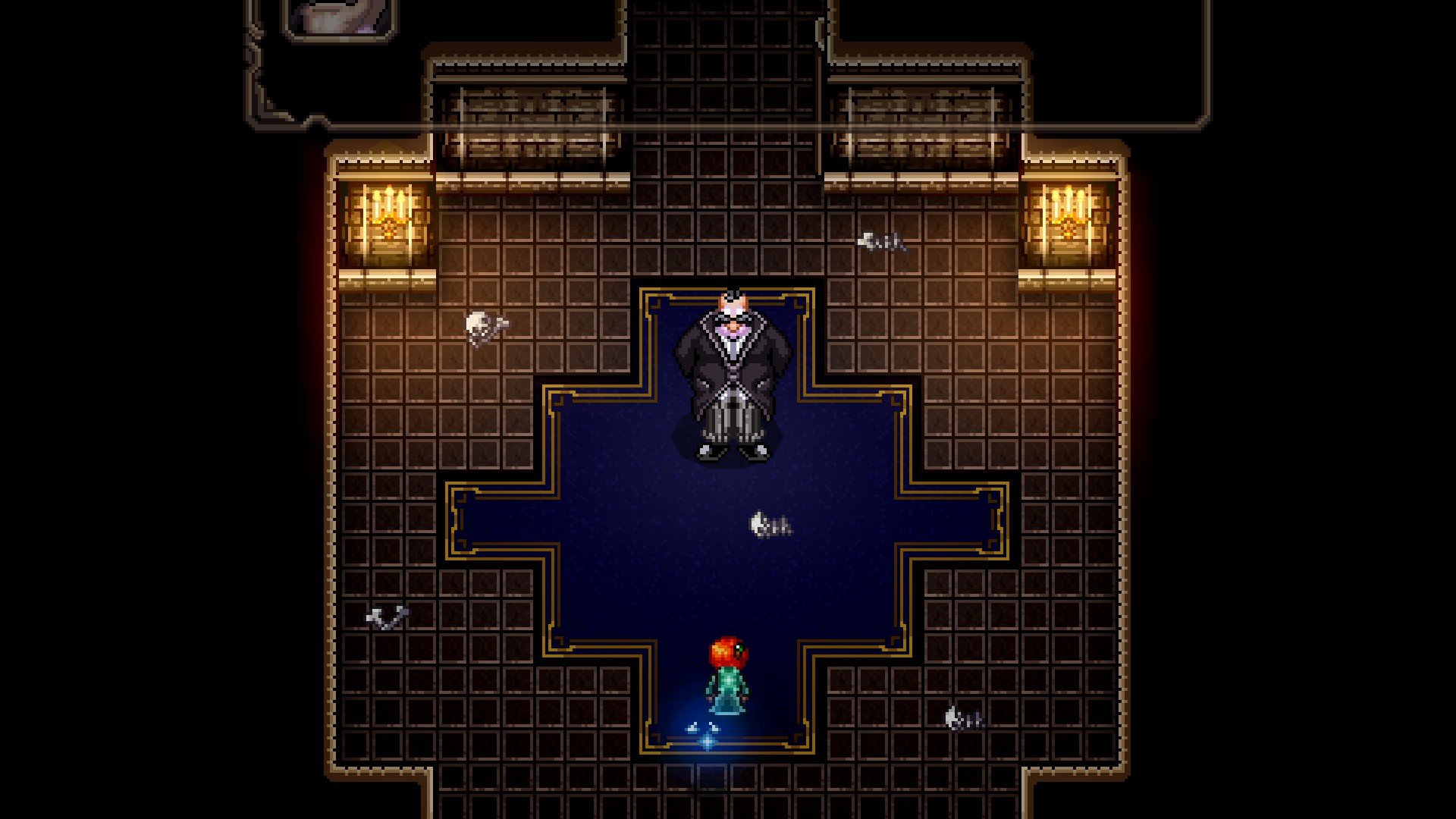
The bosses do bring some variety into the fray, but they are usually short-lived when compared to the rest of the enemies. The game’s levels are randomly generated, but I have to say that with each playthrough, it felt like I was playing in rooms that I had already seen. I don’t mean that they are the exact same, but they often are very alike. The fact that rooms pretty much do not have anything going on, besides some destructible furniture, means that they are devoid of any life or charm, which most often than not makes them look very similar. Still, there were a few times where the generation algorithm came up with some rather awkward and funny room configurations.
While the game does not feature multiplayer, it does have a social feature that can be experienced by sharing what the game calls a “friend code” with other people. This makes it so that, when players die they can leave a souvenir for other players. This can be done at the expense of some of the gold that you gather during your run, and you’re able to buy things that will stay up for up to a few days. Things like a bag of coins, consumable items, just a single gold coin, or even an enemy ambush, are a few examples of what you can leave for other players to find while they’re exploring the dungeons.
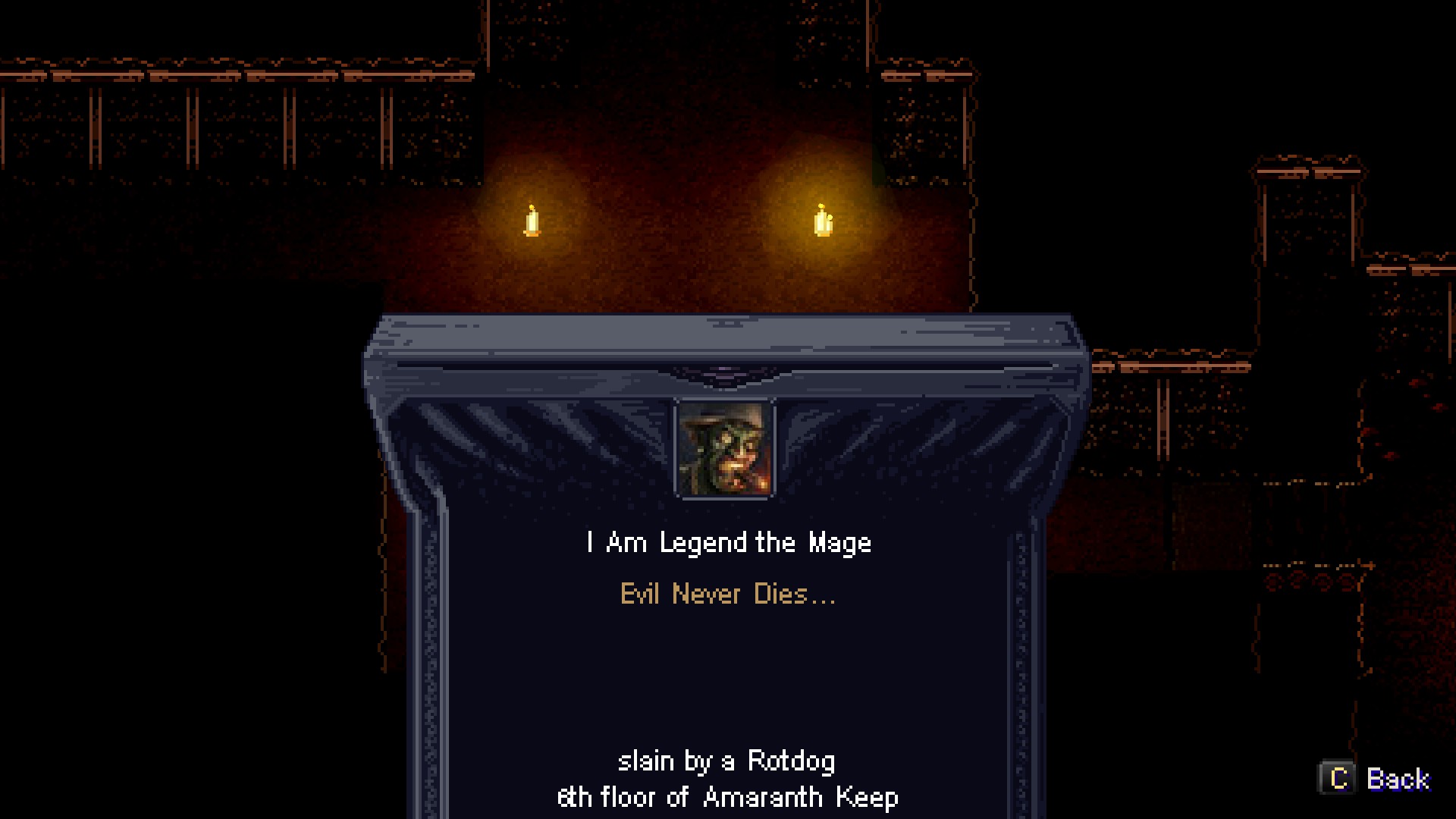
Despite everything, the thing that really makes me not have a good time with Wayward Souls is the fact that, after you die, going through the dungeon where you just were just feels like a huge grind. Also, I can understand locking each dungeon for all the classes except for the one that you managed to play with for story reasons, but I can’t really understand why the developers have chosen to make it so that the dungeons are not connected. Each dungeon is treated as if it’s its own thing, which is really weird when you can beat a single dungeon in about 15 minutes with a little bit of luck. Granted, the fact that dungeons are so short means that in the event of a sudden death, you can quickly get back to where you were, but the journey still feels pretty much the same.
Verdict
Wayward Souls should remain in Early Access for a few more months, and I’m curious to see if it changes much during that time. As of right now, if you are looking for a dungeon crawler, I think there are better options out there. I would not really recommend this game to people that are looking for a game with engaging combat, as Wayward Souls can get old pretty fast. This is not to say that the combat is bad, or the game itself is bad, it’s just that it doesn’t really have anything special that makes it stand out in this saturated genre.







